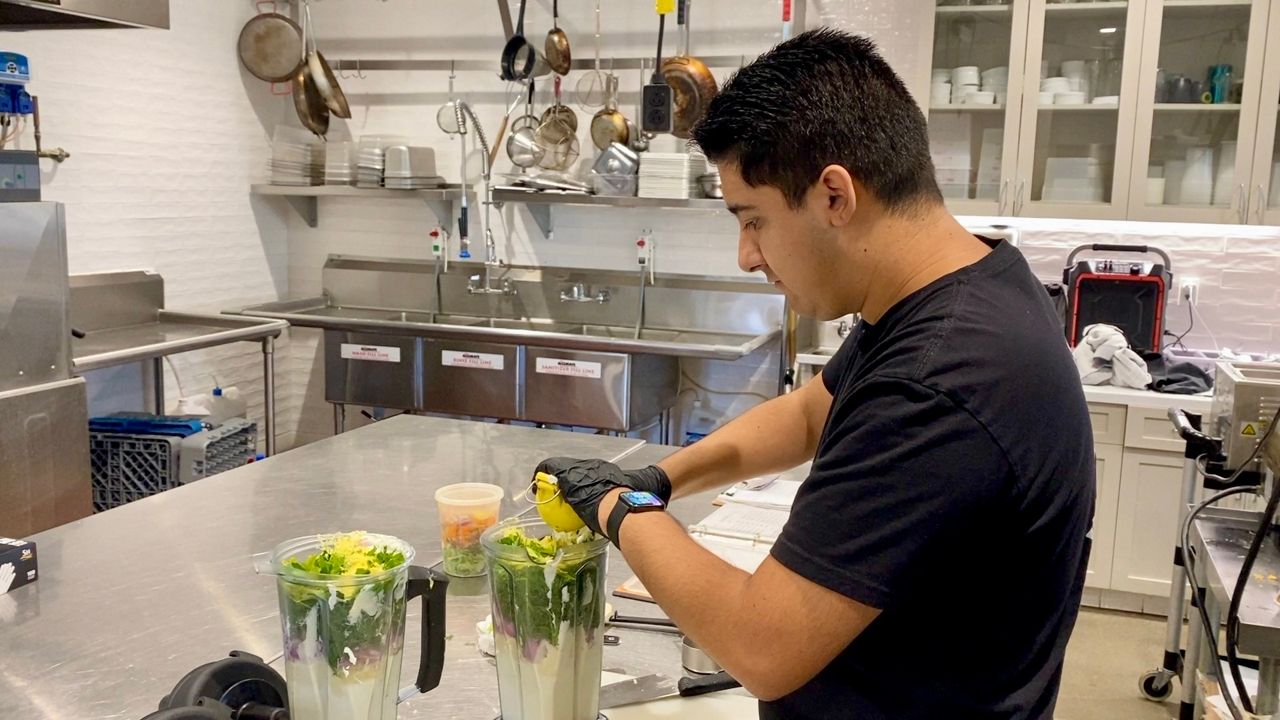Jobs
Internship helps train adults with special needs for jobs within the community

SAN DIEGO — A nonprofit is changing the way the world sees individuals with special needs while training them to find fulfilling and successful jobs within the community.
Working in the kitchen brings Cesar Hernandez a lot of joy. He doesn’t have to think twice about the reason.
“The food,” he laughed. “Definitely all the good food.”
Hernandez has high-functioning autism and ADHD.
He’s honing his skills as a line cook through a Vocational Internship Program at TERI Campus of Life, a nonprofit dedicated to serving the neurodivergent community.
Hernandez says not only has he learned practical skills like handling knives and following recipes, but he’s also a better teammate, more focused and better at expressing himself.
“Communication a bit of a struggle, but working here I really learned how to communicate better,” he said. “So in a way, it turned — not a weakness necessarily — but it turned a skill deficit of mine into a strength.”
Meredith McDermott works with Cesar and other interns as the director of Integrated Employment Services.
She says they offer internships in agriculture, commercial kitchens and the equestrian field.
She says they are bridging the gap to help adults with special needs learn the skills they need to get a job within the community.
“Sometimes it’s hard to navigate. Having to work with other coworkers, understanding the body language, communicating in the workplace,” she said. “Like Cesar mentioned, communication is incredibly important, but that’s a skill that may not come naturally to some of our [interns].”
McDermott says they help people with autism, Down syndrome, cerebral palsy and other learning disabilities.
She says training lasts about six months to one year and during that time, students work directly with a TERI job coach both in the classroom and on the job.
Students also receive industry-standard minimum wage during their training. She hopes their Vocational Internship Program can be a model worldwide.
“As they develop more skills and be able to get promoted or be able to go up to a different level into their workforce, then they’re able to make more money, have more choices and more control and independence in their life,” McDermott said.
Hernandez knows he will be ready to start a new career when he graduates next year and hopes he can change the perception of working with people who have special needs.
“While I am anxious and a bit nervous about my future, as we all are, I feel like with my skills I learned here I can transfer those skills onto another similar profession,” he said. “People give these labels to others, and they use these labels like ‘they can’t do anything.’ I certainly think that people are more than their labels.”
McDermott says they have graduates who have worked as baristas, in the kitchen and hospitality industry, and as stable hands in the equestrian field.









